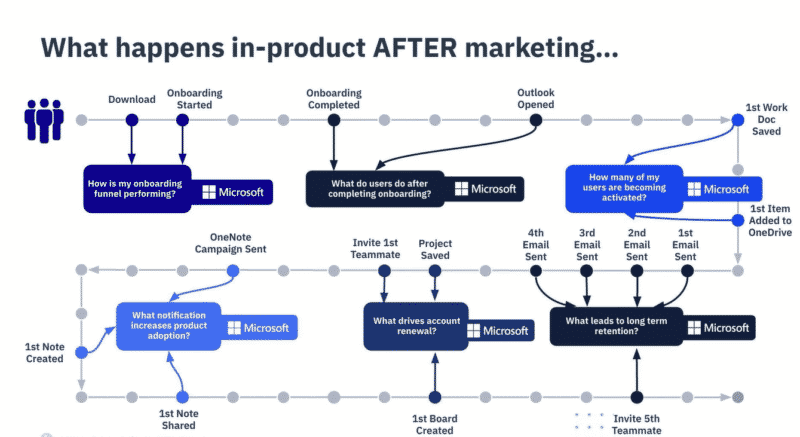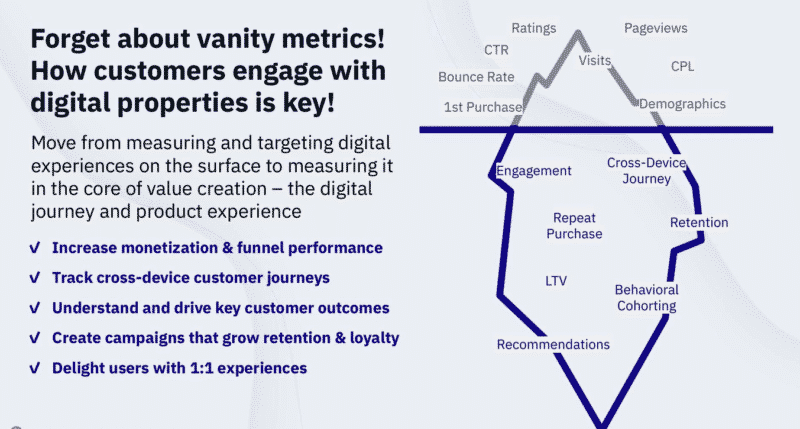Uncover the most valuable metrics to understand customer engagement with mobile apps and other digital products.
Although digital channels are proliferating, calling marketers to step up efforts like content production and omnichannel orchestration, for some brands, more customer activity is being consolidated in one place – the mobile app, or some other kind of digital product. The problem is that the marketing team needs to join forces with the product team that developed the app in order to get a hold on what customers are doing at that single destination.
Especially during the pandemic, customers migrated from physical stores to a digital storefront. The app became the first place that customers would check for deals and to order, instead of driving to the local bank, store chain or restaurant.
Marketing efforts will drive customers from other channels to the app (for instance, with a CTV campaign that features a QR code). In this instance, the marketing team will have the performance data on how the app acquires customers. But important metrics beyond that, which product teams might know more about from inside product development, are more of a black hole to the marketers.
Disconnect between marketing teams, product teams and their customers
Adam Greco, product evangelist at analytics company Amplitude, offered some examples of the disconnect between marketing and product teams in his presentation at The MarTech Conference (scroll down to see video of the full session).
For instance, product teams have the responsibility of creating a high-quality digital experience for customers. However, given all the customer data marketers have on their side, the marketing team would be in a better position to identify the kinds of customers that the app is best at serving.
This gets more complicated when a brand has multiple apps serving different purposes. If marketing isn’t aligned with the different products, they could wind up sending a customer who is seeking customer service to a more sales-oriented app. No one wins in this situation.

For a free-trial app, marketers might not even know if a customer that was driven there and downloaded it has dropped from the app, Greco said. Therefore, the marketing and product teams need to come together. The best way to unite is around relevant data and insights in the app or other digital product.
Important metrics and behaviors for product analytics
Every click, every signal. Within the app or digital product, customers are telling brands important things about why they’re in the product and what they want to accomplish there.
“What is it that they’re interested in?” Greco asked. “What’s important to them? How engaged are they? If you as a marketer aren’t considering this to be part of the customer experience, then you are missing out.”
He added, “You need to be able to collect all of this data and merge it with all of the information about how you found the customer and so on.”

Customer lifetime value. A major goal from the product analytics that marketers and product teams should unite around is customer lifetime value. This means looking at valuable signals instead of vanity metrics.
“In the old days, we would focus on things like unique visitors and visits,” said Greco. “But we really need to start thinking about new measurements and going further down in the customer experience to engagement, retention, customer lifetime value, repeat purchases and loyalty.”
Digital experience. “More and more we’re learning that the experience that people have in our digital products is actually more important than how you find them,” Greco said.
By keeping an eye on insights from product analytics, marketing teams can identify the best metrics for growing long-term customer relationships. They can also help product teams pinpoint ways to improve experience within the digital product.
Each side helps the other out, united in delivering a better experience for valued customers.
The post How product analytics can unite marketing and product teams to boost customer lifetime value appeared first on MarTech.
(17)








